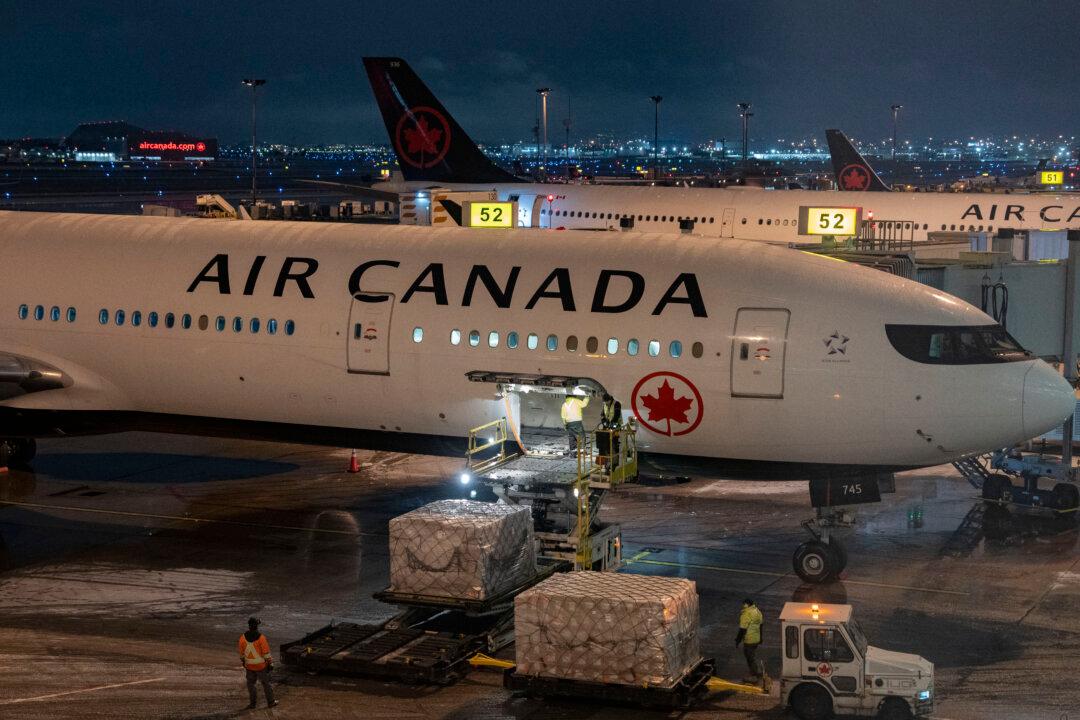OTTAWA—Anti-nuclear campaigners who want Canada to push for a global ban on nuclear weapons are concerned that Foreign Affairs Minister Stephane Dion is showing a lack of enthusiasm for that goal.
Dion said in a speech earlier this month that the current global security environment is simply not conducive to a ban on nuclear weapons because some states just won’t relinquish them.
Cesar Jaramillo, executive director of the peace group Project Ploughshares, says there’s never a perfect time to push for such a ban and the time to start is now.
Nuclear disarmament and security are front and centre this week in Washington as U.S. President Barack Obama hosts his final Nuclear Security Summit.
Prime Minister Justin Trudeau is among the world leaders attending the two-day meeting, which is focused on curbing nuclear terrorism by cracking down on the trafficking of materials needed to build such a weapon.
Obama announced the initiative in a landmark speech in Prague in 2009, in which he expressed his aspiration for a nuclear-free world, even if it didn’t come in his lifetime.
Earlier this month, Dion said in a speech in Geneva that any negotiations to ban nuclear weapons would have to include all countries that possess them.
“Without the participation of the countries possessing nuclear weapons, a ban would not bring us any closer to our shared goal of a world free of nuclear weapons,” Dion said on March 2.
“Indeed, premature action risks undermining international stability by creating a false sense of security, without any reliable underpinnings.”
Dion’s remarks largely flew under the radar but anti-nuclear activists took note.
“The reality is that there will never be ideal international security conditions for nuclear disarmament,” Jarmillo said.
“Nuclear abolition will be a complex, multifaceted undertaking that will need to coexist with international security crises of varying gravity,” he added.
“Nuclear disarmament measures must be started, implemented, and concluded in geopolitical conditions that are predictably less than perfect.”
Paul Meyer, a retired diplomat who once served as Canada’s disarmament ambassador, said Dion should be pushing harder for progress on broader disarmament in spite of the geopolitical obstacles. He cited Canada’s leadership in championing the anti-landmine treaty in the 1990s.
“Minister Dion should recall that if Canada had only been willing to consider ‘incremental’ progress on the disarmament of landmines back in 1997 we would still be in a world awash with these weapons,” Meyer wrote in a recent column in Ottawa’s Embassy newsweekly.
This week’s Washington summit on curbing the trafficking of nuclear components comes amid periodic reports of the theft of radioactive material that could be used to build a so-called “dirty bomb.”
Jaramillo said preventing nuclear terrorism is a worthy and urgent objective. “But it cannot be understood in isolation from the broader multilateral dynamics related to nuclear disarmament and the slow pace of progress toward that goal,” he added.
“It is still early in the Liberal government and it may still be formulating its stand on nuclear abolition. So far, however, there has been little change from the Conservative government concerning Canada’s core positions in this regard.”
Several successes
The Washington meeting, taking place March 31 and April 1, is the fourth Nuclear Security Summit and flows from a speech Obama gave in Prague soon after he took office. He expressed hope for a world without nuclear weapons—which he conceded might not be achievable in his lifetime.
But Obama’s 2009 speech set shorter-term targets. One was securing the existing nuclear material around the world; he convened international leaders’ meetings to make it a high-level priority.
As Obama leaves office, U.S. officials said the final summit communique will announce next steps leaders intend to take within the five organizations working on the nuclear security issue, including the U.N., Interpol, and the International Atomic Energy Agency.
The Obama administration points to several successes these last few years:
- Enough fissile material to make 130 nuclear weapons has been removed or downgraded from 50 facilities in 30 countries.
- Fourteen countries and Taiwan have eliminated all nuclear material from their territory.
- Twenty countries have increased co-operation to counter nuclear smuggling.
But 2,000 metric tons of weapons-usable material remains in civilian and military programs, says the White House.
It would require 25 kilograms of highly enriched uranium to produce a nuclear bomb, former State Department official Sharon Squassoni told a briefing at the Center for Strategic and International Studies.
From The Canadian Press





